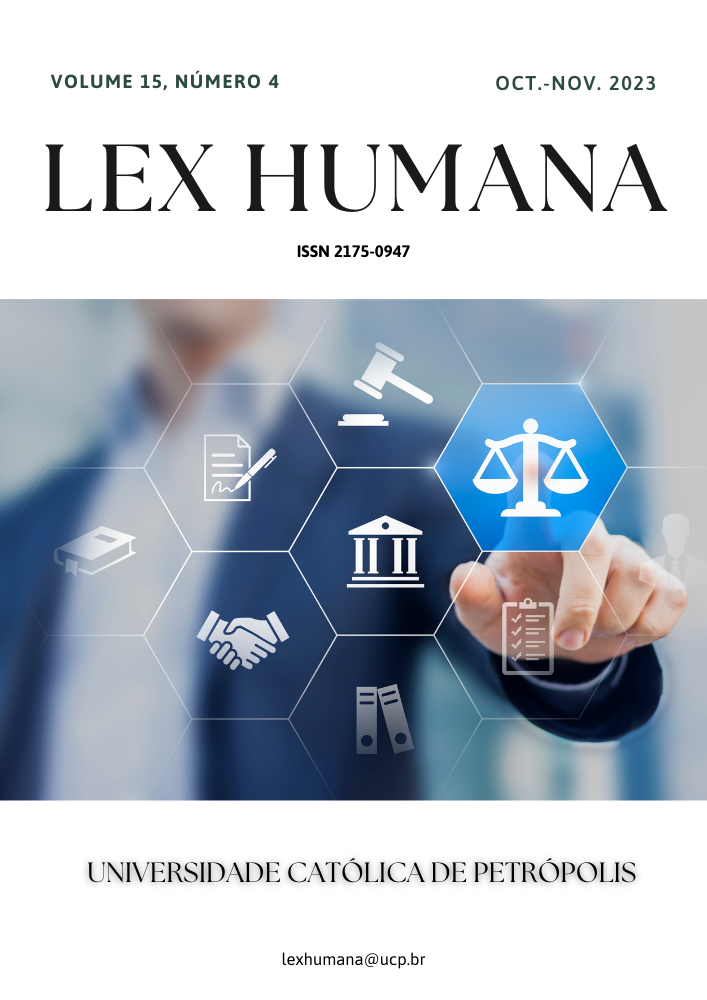Resumo
O estudo apresentado investiga o estado de implementação da democracia eletrónica nos sítios Web das principais cidades da Roménia, examinando a sua influência na participação e no envolvimento dos cidadãos. A linha vermelha da investigação é explorar as consequências jurídicas da não implementação da democracia eletrónica. Além disso, com o objetivo de identificar as entidades que funcionam como vigilantes eficazes da democracia eletrónica, discuto a recusa do visto de legalidade pelo Presidente da Câmara como possível mecanismo para melhorar as práticas democráticas electrónicas. Além disso, o estudo compara os contributos dos governadores dos condados da Roménia e da Noruega, destacando as principais semelhanças, diferenças e potenciais factores explicativos. Através de uma abordagem de métodos mistos, incluindo a análise de sítios Web, um índice de monitorização da democracia eletrónica, inquéritos e uma análise comparativa, esta investigação fornece informações sobre a implementação da democracia eletrónica, as implicações jurídicas e a dinâmica da governação. Por último, o estudo apresenta recomendações específicas e lições aprendidas para promover a democracia eletrónica.
Referências
*, EU (2022), Digital Economy and Society Index 2022 Digital public services, file:///C:/Users/vmada/Downloads/4_Desi_2022_Thematic_chapters_Digital_public_services_3sg1kZH3OjmhrU4jM27YRYYcvg_88768.pdf: 4-5
*, European Commission (2016), Evalsed Sourcebook: Method and Techniques, Brussels: European Commission
*, Romanian Ministry of Development, Public Works and Administration (2021), Small towns in Romania. Synthesis report, 2021, https://www.mdlpa.ro/uploads/articole/attachments/618cf35802670303726314.pdf
*, UN, United Nations e-Government Survey 2022. The future of digital government, United Nations, New York, 2022, https://publicadministration.un.org/en/: 72
Acosta-Pumarejo, E., Citizenship and nationality: a saga of a historical connection and the dialectic of inclusion/exclusion, Tribuna Juridica - Juridical Tribune, Volume 13, Issue 2, June 2023, pp. 284-302.
Al-Shbail, T., & Aman, A. (2018). E-government and accountability. Transforming Government, People, Process and Policy. http://dx.doi.org/10.1108/TG-09-2017-0057
Baek, C., Tiplic, D., Santos, I. (2022). Evidence-Based Policymaking in Nordic Countries: Different Settings, Different Practices? In: Karseth, B., Sivesind, K., Steiner-Khamsi, G. (eds) Evidence and Expertise in Nordic Education Policy. Palgrave Macmillan, Cham. https://doi.org/10.1007/978-3-030-91959-7_9
Bannister, F., & Connolly, R. (2012). Defining e-Governance. E-Service Journal, 8 no. 2: 3–25. https://doi.org/10.2979/eservicej.8.2.3
Benabed, A., and Tudoran, L., Artificial Intelligence Towards International Regulations, Frameworks and Laws in the World of Globalization: Implications and Challenges, Perspectives of Law and Public Administration Volume 12, Issue 2, June 2023, p. 270.
Bjørnå, H., Jenssen, S. (2006), Prefectoral Systems and Central–Local Government Relations in Scandinavia, Scandinavian Political Studies 29(4):308 – 332, DOI:10.1111/j.1467-9477.2006. 00154.x
Chirieac, Roxana Maria, The future of cross border mergers in the light of the new European Union provisions. Their implementation in Romania, Tribuna Juridica - Juridical Tribune, Volume 10, Issue 2, June 2020, p. 285.
Grigalashvili, V. (2022). E-government and E-governance: Various or Multifarious Concepts, International Journal of Scientific and Management Research, IJSMR.2022.5111
Hautamäki A., Oksanen K. (2018). Digital Platforms for Restructuring the Public Sector, Smedlund A., Lindblom A., Mitronen L. (eds) Collaborative Value Co-creation in the Platform Economy. Translational Systems Sciences (vol 11). Springer, Singapore. https://doi.org/10.1007/978-981-10-8956-5_5
Holzer, M., Manoharan, A., Melitski, J., (2019). E-Government and Information Technology Management: Concepts and Best Practices, Melvin & Leigh, Publishers: 88-89
Ioan, G.-C., The effects of Regulation no. 679/2016 on the Romanian commercial environment. The new obligations in the field of personal data, Tribuna Juridica - Juridical Tribune, Volume 8, Special Issue, October 2018, pp. 111, 112.
Kundnani, H., (2020) The Future of Democracy in Europe: Technology and the Evolution of Representation, Chatham House
Peráček, T., E-commerce and its limits in the context of the consumer protection: the case of the Slovak Republic, Tribuna Juridica - Juridical Tribune, Volume 12, Issue 1, March 2022, pp. 35-48.
Popa Tache, C. E., Public International Law and FinTech Challenge, Perspectives of Law and Public Administration, Volume 11, Issue 2, June 2022, pp. 218-226.
Râmniceanu, V.-T., European Union Initiatives and Regulations on Sustainable Corporate Governance, International Investment Law Journal, Volume 2, Issue 1, February 2022, p. 89.
Retnowati, N. & Nugraheny, D. (2021), G2C (Government to Citizen) Digital Interaction and C2G (Citizen to Government), Jurnal Sains dan Teknologi. 13. 90. 10.31958/js. v13i2.4692.
Robinson, S. (2020), Trust, transparency, and openness: How inclusion of cultural values shapes Nordic national public policy strategies for artificial intelligence (AI), Technology in Society, Vol. 63, https://doi.org/10.1016/j.techsoc.2020.101421.
Roztocki, N. & Strzelczyk, W. & Weistroffer, H. (2023). Beyond E-Government: A Framework for E-Democracy, AMCIS 2022 Proceedings. 2. https://aisel.aisnet.org/amcis2022/sig_globdev/sig_globdev/2
Salmon, G., & Zilliacus, K. (2007). Nordic Collaborative Governance. Ecologic, Magazine, (September), 4-7.
Șancariuc, D.-R., Economic Regulation, Institutions and Entrepreneurship: Perspectives from the Experience of States in Transition, International Investment Law Journal, Volume 2, Issue 1, February 2022, p. 73.
Sauleanu, L.B., Raduletu, S. (2007), Dictionary of Latin Legal Expressions, C.H. Beck, Bucharest
Saxena, S., (2018) National open data frames across Japan, the Netherlands, and Saudi Arabia: Role of culture, Foresight 20(1): 123–134
Sheridan, W. and T. Riley (2006), Comparing e-Government Vs. e-Governance, GISDevelopment. www.gisdevelopment.net/magazine/years/2006/ aug/46_l.htm56)
Voican, M. (2018). Administrative Acts, The Ultimate Theory, Universitaria Craiova

Este trabalho está licenciado sob uma licença Creative Commons Attribution-NonCommercial-NoDerivatives 4.0 International License.
Copyright (c) 2023 Lex Humana (ISSN 2175-0947)
